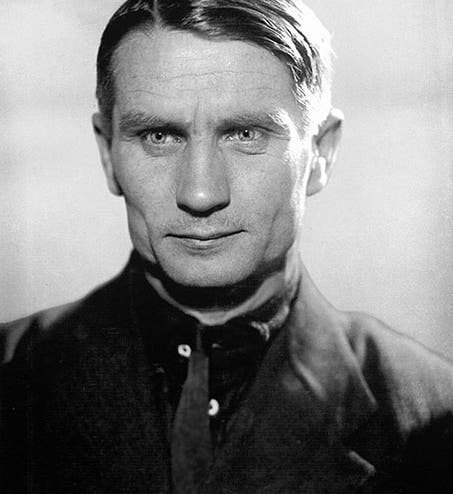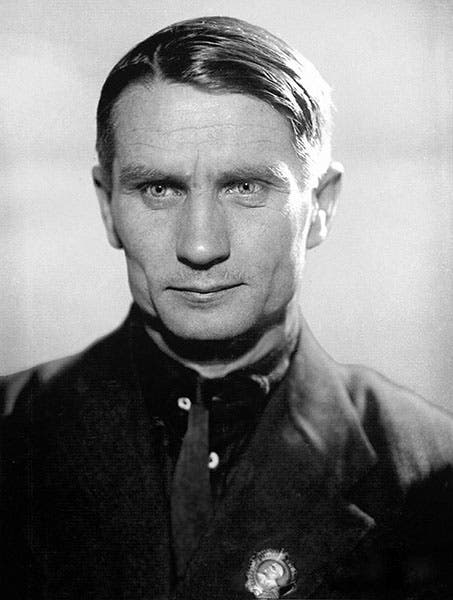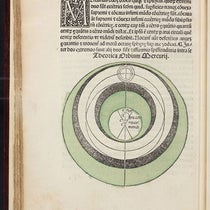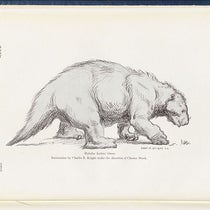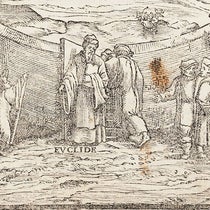Scientist of the Day - Trofim Lysenko
Trofim Lysenko, a Soviet agronomist, was born on Sep. 29, 1898, in Poltava, Ukraine. He graduated from the Kiev Agricultural institute in 1925 and began to work on the problem of trying to convert winter cereals like wheat to spring cereals by treating the seeds. He claimed success in what he called the “vernalization” of crops, and further claimed that changes in germination behavior acquired by one generation of plants would be inherited by succeeding generations. Believing that acquired characteristics can be inherited was known in the West as "Lamarckism," and although Lysenko denied being Lamarckian, his plant genetics certainly was.
None of this would have mattered had not Lysenko and his proposed reforms in agronomy come to the attention of Joseph Stalin, who apparently liked the fact that this rough-hewn rural-born agronomist was rejecting western genetics in favor of a new Soviet system of plant breeding, and he gave Lysenko his official support. Soon Lysenko was denouncing the "Mendelists-Morganists-Weissmanists" who opposed his ideas, which was most of the Soviet agronomy community, which was quite advanced before Lysenko appeared on the scene.
Throughout the 1930s, Lysenko became increasingly powerful, and he was appointed director of the All-Union Academy of Agricultural Sciences in 1938. He introduced national agricultural policies based on his own Lamarckian theories. He denounced his enemies more and more vigorously, taking special aim at Nikolai Vavilov, under whom he had trained, and who was a vocal opponent of Lysenko’s science and policies. In 1940, Vavilov and a number of his colleagues were arrested. Vavilov was sentenced to death, a sentence that was commuted, but he died in prison in 1943. All of his colleagues also died in custody.
In 1948, Lysenko, at the height of his power, gave an address at a national meeting in which he denounced Mendelian genetics and those who supported it as tools of western decadence, calling them pseudoscientists, one of the first times this word had been used, coming ironically from the man that many call the most prominent pseudoscientist the 20th century ever produced. The problem with Lysenkoism was that it did not work, and there were widespread crop failures from wheat that refused to be vernalized, and peas that just would not grow in winter. Mendelism will not be denied. It is often said that Soviet agronomics was set back 50 years by Stalin and Lysenko.
When Stalin died in 1953, Lysenko’s star began to dim, although Nikita Khrushchev fully supported Lysenko’s policies. But dissent in the ranks rose rapidly in post-Stalin Russia, and in 1964, Lysenko was denounced and removed from office. Soviet agriculture is still recovering.
The moral of the rise and fall of Lysenkoism is not hard to find. Political regulation of science is a bad idea. Scientists are very good at policing their own field, and they have the collective knowledge to do so. Statesmen, however well intentioned, have no business picking favorites and appointing them to positions of power. Scientific theories are not ideologically correct or incorrect – they are statements about the world and should not be given a political context. The government should not be adjudicating conflicts, and certainly should not be silencing opposition. The result of government meddling in scientific matters has never been good, and the Lysenko affair should be remembered as a prime example of what happens when the meddling goes too far.
William B. Ashworth, Jr., Consultant for the History of Science, Linda Hall Library and Associate Professor emeritus, Department of History, University of Missouri-Kansas City. Comments or corrections are welcome; please direct to ashworthw@umkc.edu.

